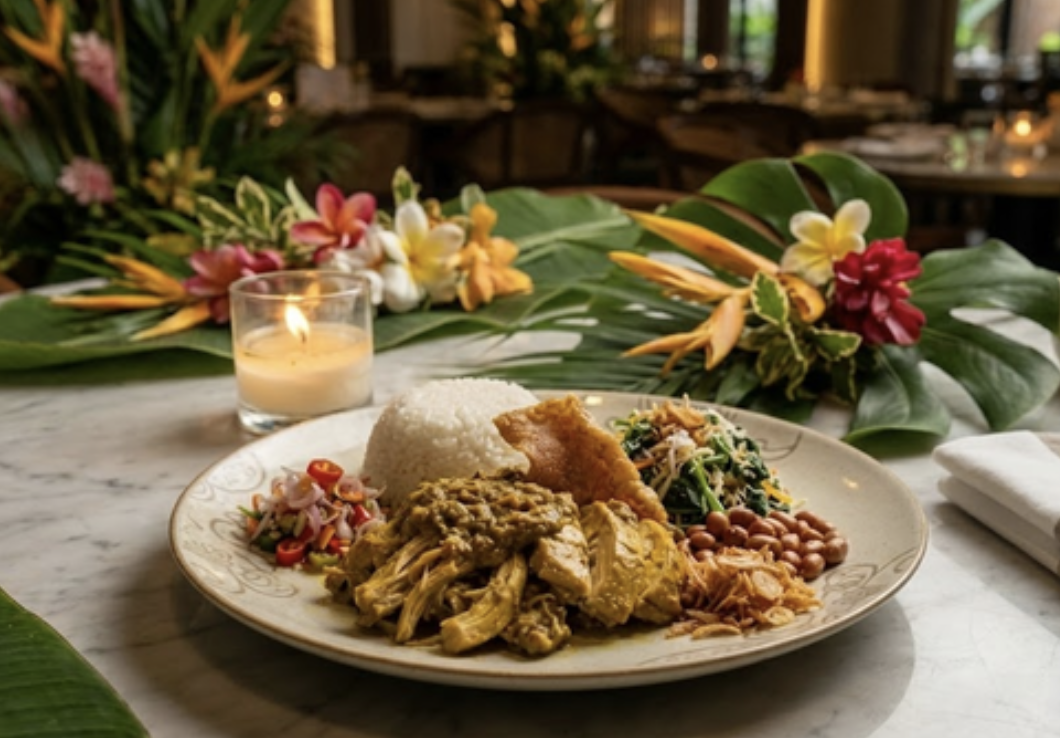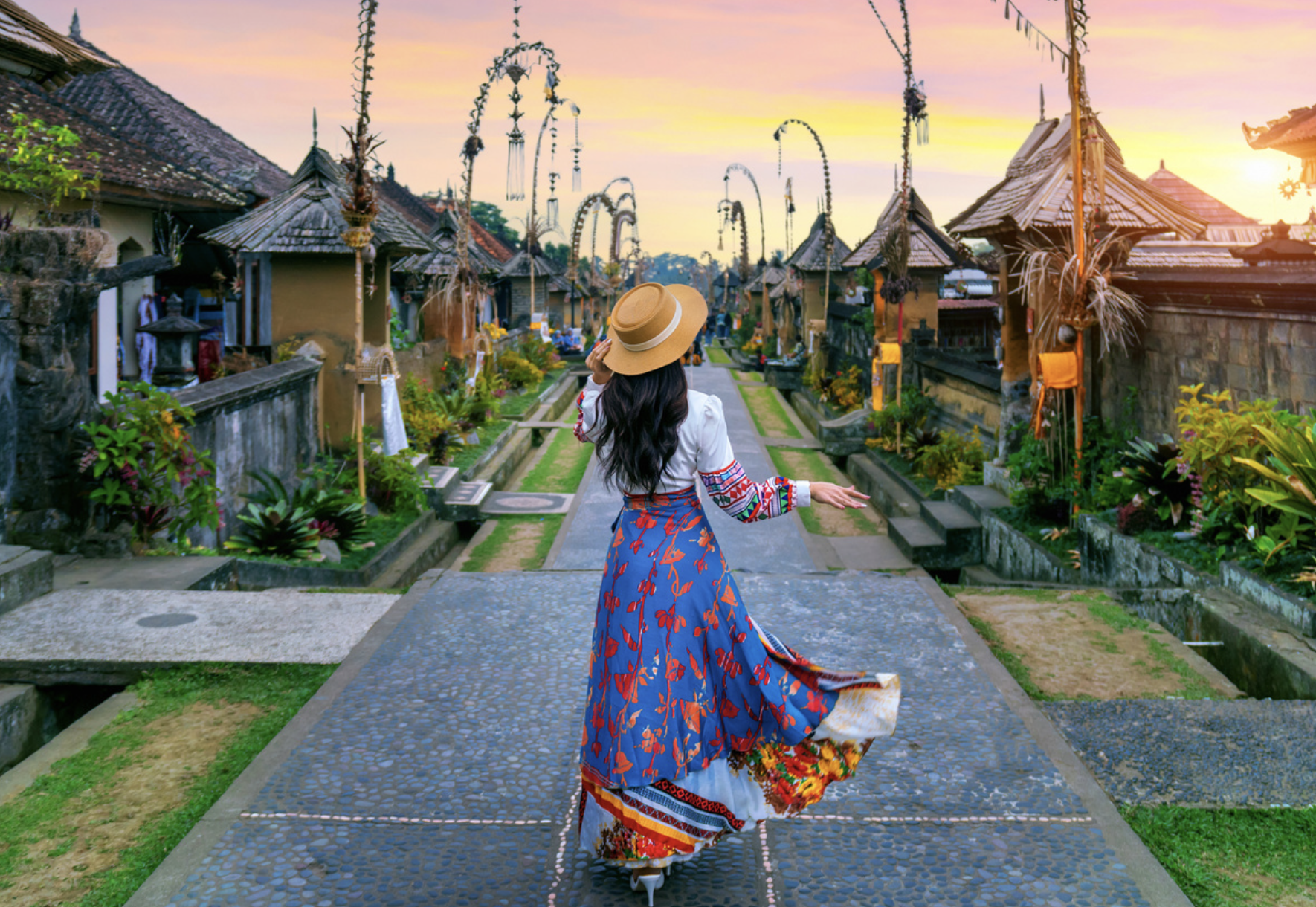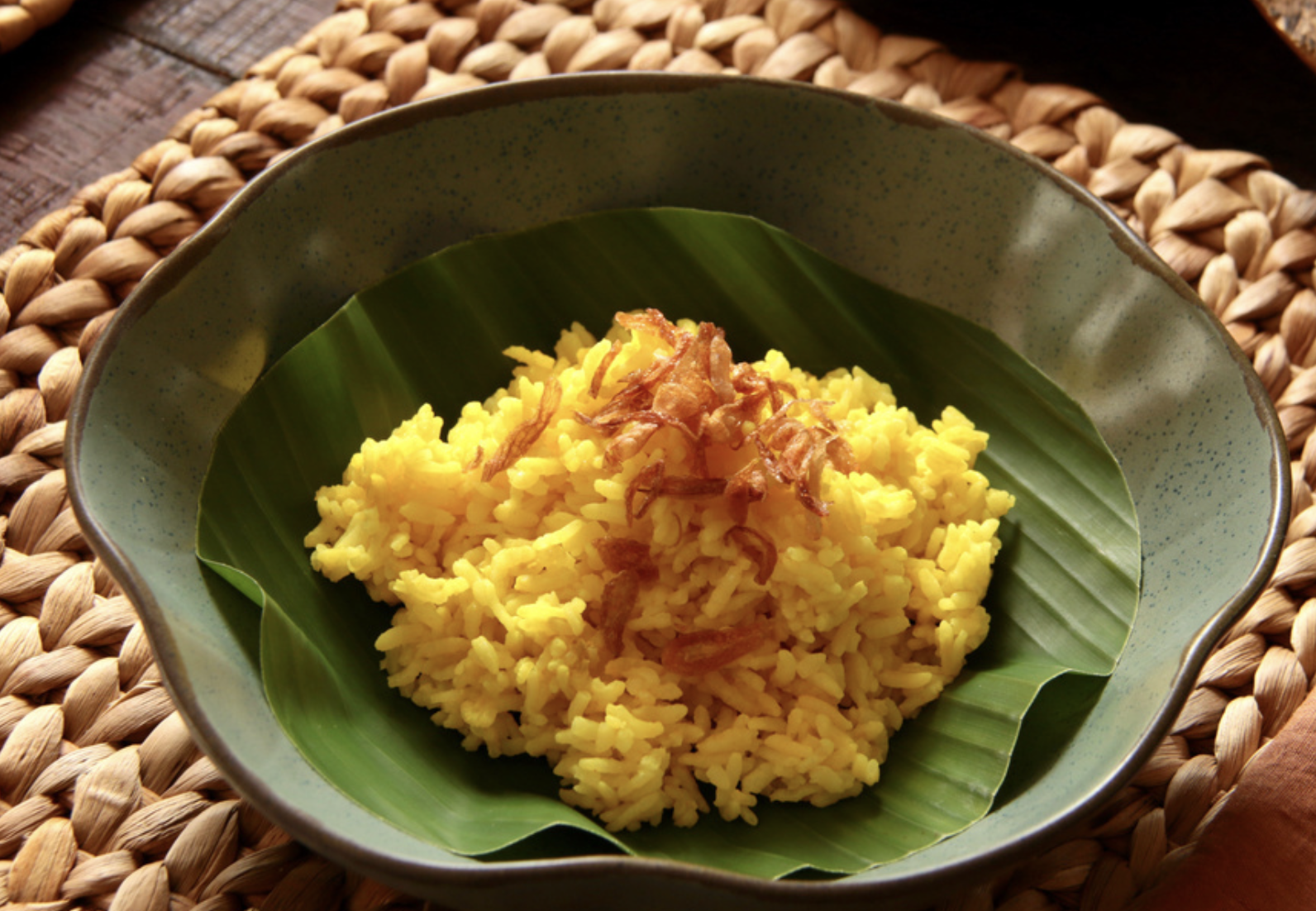Every 210 days, Bali is bathed in gold. Kuningan, the closing day of the Galungan celebration, marks the moment when ancestral spirits return to the heavens after their brief visit to Earth. Villages and temples come alive with penjor swaying in the breeze, the scent of incense, and the rhythmic sound of morning prayers. Offerings of yellow rice (nasi kuning), fruits, satay, cakes, and arak are prepared with care, guided not by recipes but by intuition. More than a ritual, Kuningan is a culinary language – a reflection of gratitude, harmony, and connection. And today, it is inspiring a new chapter in Bali’s gastronomy tourism.
Kuningan holds deep meaning in Balinese Hindu philosophy. Coming ten days after Galungan, it represents both farewell and balance – a time when ancestral spirits are believed to ascend back to the spiritual realm. Early in the morning, before midday when the spirits are said to depart, families prepare banten (offerings). Towers of fruit, cakes, and rice are placed in family shrines and temples, accompanied by a small portion of arak Bali, symbolising joy and divine respect.
Central to the celebration is nasi kuning, its bright colour symbolising prosperity and protection. The food is never just served – it’s shared. Cooking begins long before dawn, led by mothers and grandmothers who measure not with scales, but with rasa (taste), mata (the eye), and hati (intuition). This sensory cooking method embodies the communal soul of Balinese cuisine.
Today, these rituals are being thoughtfully woven into culinary tourism experiences. Boutique resorts and local communities are collaborating to offer immersive programs: guests can learn to make offerings, walk under lines of penjor, join village kitchens, and taste Kuningan-inspired dishes reimagined by Balinese chefs. Imagine yellow rice served with heirloom turmeric, satay presented as a refined amuse-bouche, or arak transformed into a delicate cocktail that still honours its ritual role.
For buyers, these experiences offer something rare: gourmet tourism with spiritual depth. Instead of performances staged for tourists, Kuningan opens real doorways to living tradition – where food is not just eaten, but felt. This is Bali’s strength: culture and cuisine intertwined, guiding the future of meaningful travel.
“Gastronomy in Bali begins where rituals live. Kuningan reminds us that taste, tradition, and community are one story.”BBTF 2026 invites buyers to co-create culinary journeys with ASITA Bali Region.






